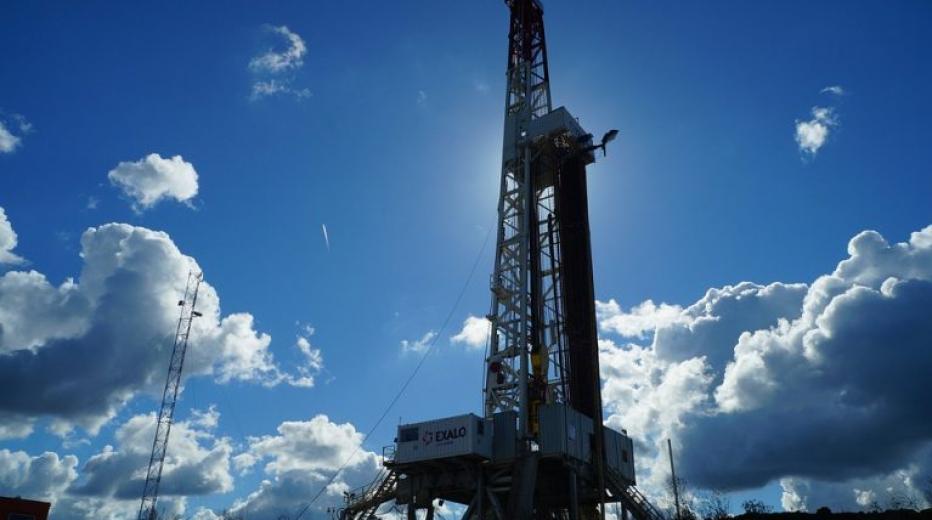
Momentum building on methane, Europe’s climate blind spot
In a new resolution on the EU's net-zero strategy the European Parliament once again acknowledged the political urgency for legislation on what has, to date, been Europe’s climate blind spot: methane emissions. This vote on 14 March is the fourth significant development in the space of the last six months [1], raising expectations that the EU is finally embracing a major opportunity to better characterise emissions of methane and take action to unlock cost-effective mitigation.
Methane is a short-lived climate pollutant. Manmade increases in methane in the atmosphere account for more than 25% of the warming we currently experience. According to the IPCC, over a 20-year period methane has a Global Warming Potential (GWP) 84-87 times higher than CO2 [2]. While methane breaks down in a decade, carbon dioxide sticks around for more than a century. To avert climate catastrophe in the near term and long term, we must reduce both.
The European Parliament also resolved to increase the EU’s ambition and cut the EU’s GHG by 55% by 2030. As Europe moves to tighter overall limits on greenhouse gas emissions, lack of a methane strategy is a gap that must be resolved, as methane will heavily determine the rate of temperature rise over the next couple of decades. A recent EU Joint Research Centre study [3] sets out the context for action on methane in Europe, emphasising that methane, which contributes to local air pollution and planetary warming, is not even being adequately measured today. But in 2019, the European Commission joined with EDF, the Climate and Clean Air Coalition and the global companies participating in the Oil & Gas Climate Initiative to participate in a series of science studies meant to give a better understanding of Europe’s footprint on global methane emissions.
Latest Resolution
Although not legally binding, the new European Parliament resolution is the final climate resolution of the current mandate, meaning it will help raise expectations for the new Parliament taking office on 1 July 2019. Rapid policy development on methane emissions should be a top priority for the new Parliament and feature prominently in the questions for the incoming Commission’s parliamentary hearings in September 2019.
Global methane emissions from the oil and gas sector need to be on a rapidly declining pathway. As one of the world’s largest consumers of gas, Europe can and must play a significant role in driving action at a global scale. Fortunately, methane emissions from the oil and gas sector have been recognised as low hanging fruit, with the technologies and approaches to mitigating them well known and inexpensive [4].
A well-designed, well-timed EU policy would focus on opportunities within Europe, and address the need for enhanced global cooperation to set standards for imported oil and gas supplies. The current EU gas market design optimises for competition, market efficiency and consumer prices but it does nothing to deliver on sustainability. The upcoming gas market reform offer one route by which a significant domestic source can be addressed. The picture becomes more complex when looking at paths that work to address methane emissions associated with imported gas. This would require rethinking some old ideas in the context of gas quality, security of supply and climate legislation as Europe is set to review compatibility of its polices with the Paris Agreement.
In the context of the EU’s ambitions to deliver a net-zero greenhouse gas emissions strategy, less than 3% leakage along the natural gas supply chain can cancel out the greenhouse gas emission benefits of natural gas vs. coal in power generation for a few years. The higher the leakage the longer the disadvantage persists. Similarly, if we look at the climate impacts over the net twenty years of including methane lost from CNG cars and the supply chain providing the gas, we find that they would emit 115/80 kg CO2e20 per unit energy used, while the gasoline car would emit 95/89 kg CO2e20 per unit energy used [5].
Momentum builds
As pressure builds to increase the pace and effectiveness of action on climate change, the new Parliament and Commission of the European Union have a great opportunity to unlock an area of action that has, hitherto been largely ignored. Environmental Defense Fund Europe stands ready to assist, designing studies that deliver improved data to characterise methane emissions and opportunities to reduce those emissions, influencing industry and the investment community to take the problem more seriously and engaging with policy makers and politicians to ensure that they use their positions to drive change. Rapid action to deliver a future without net greenhouse gas emissions is possible – we owe it to future generations and to ourselves to raise our game.
[1] Article 16 of the Energy Union Governance Regulation, which requires the European Commission to deliver rapidly, by 31 December 2019, plans for a reliable Union strategy. Although the Commission followed-up promptly by publishing in January 2019 a tender for a study on ways to limit methane emission in the energy sector, the delivery date is expected long after the Article 16 due date.
[2] IPCC AR5 report (84 GWP: exclusive of the effects of climate-carbon feedbacks and CO2 from CH4 oxidation).
[3] Van Dingenen, R., Crippa, M., Maenhout, G., Guizzardi, D., Dentener, F., Global trends of methane emissions and their impacts on ozone concentrations, EUR 29394 EN, Publications Office of the European Union, Luxembourg, 2018, ISBN 978-92-79-96550-0, doi:10.2760/820175, JRC113210.
[4] https://www.iea.org/weo2017/
[5] http://science.sciencemag.org/content/356/6337/492